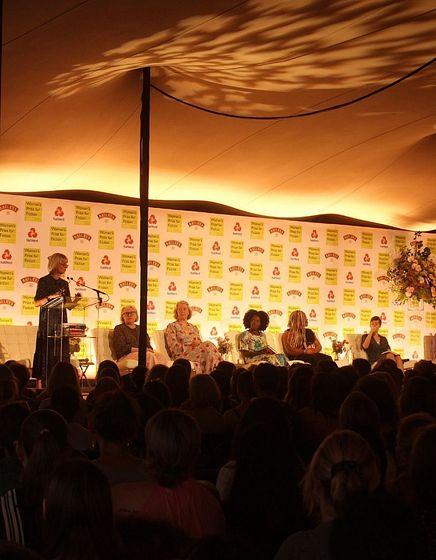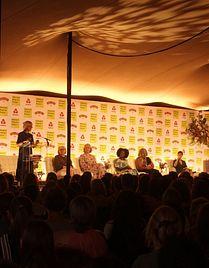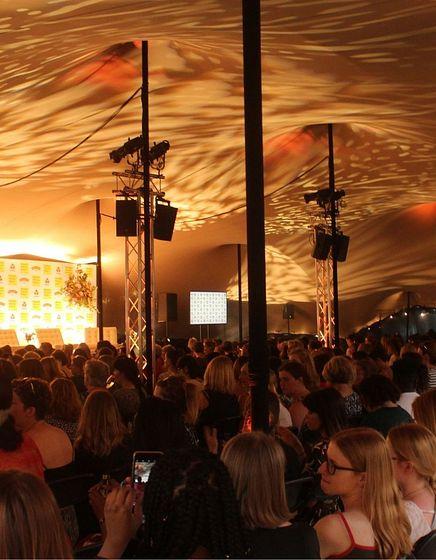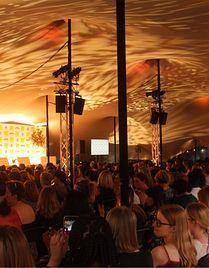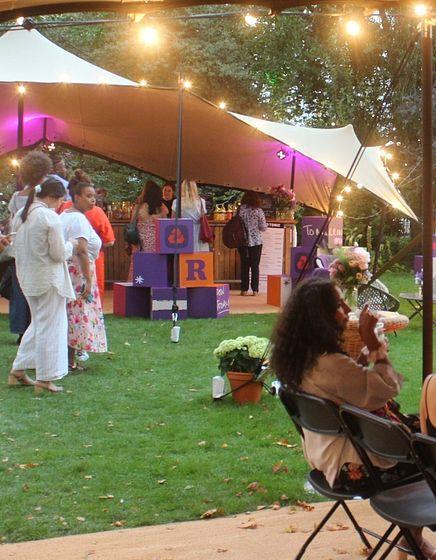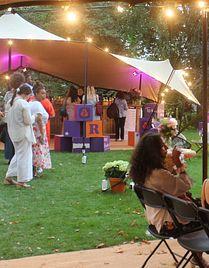nder leafy oaks and a gently lit canopy pitched in central London’s Bedford Square, the shortlisted authors of this year's Women's Prize For Fiction Award read extracts from their novels. With September temperatures of 29 degrees, the tent buzzed with the flight of mosquitos - though the palpable energy of a tent full of eager writers buzzed louder.
“Just because we have stepped forward does not mean we can’t step back,” shared host, prolific author and Founding Director of the Women’s Prize, Kate Mosse, who kicked off the proceedings of the event and urged the audience to continue to support women authors.

